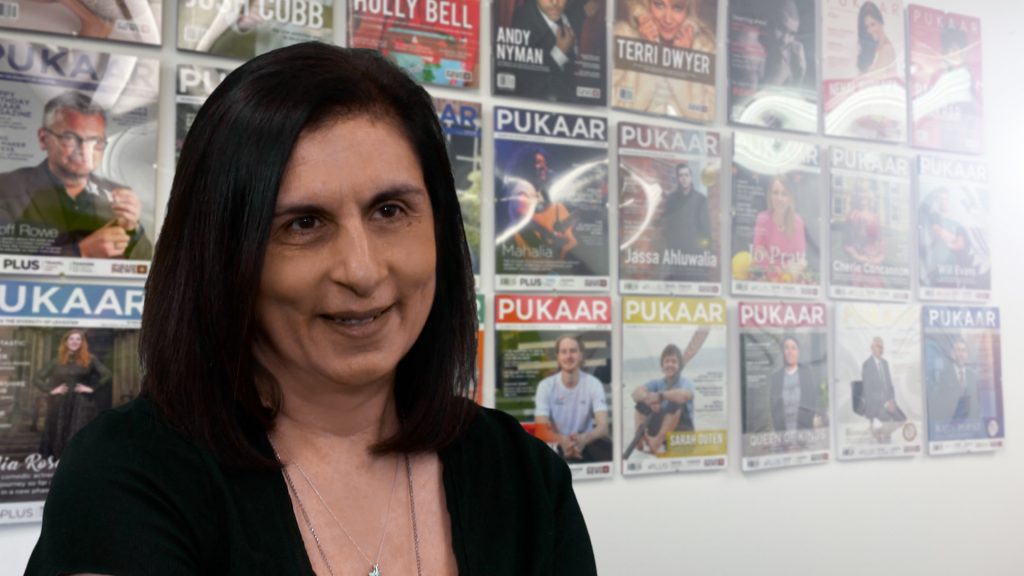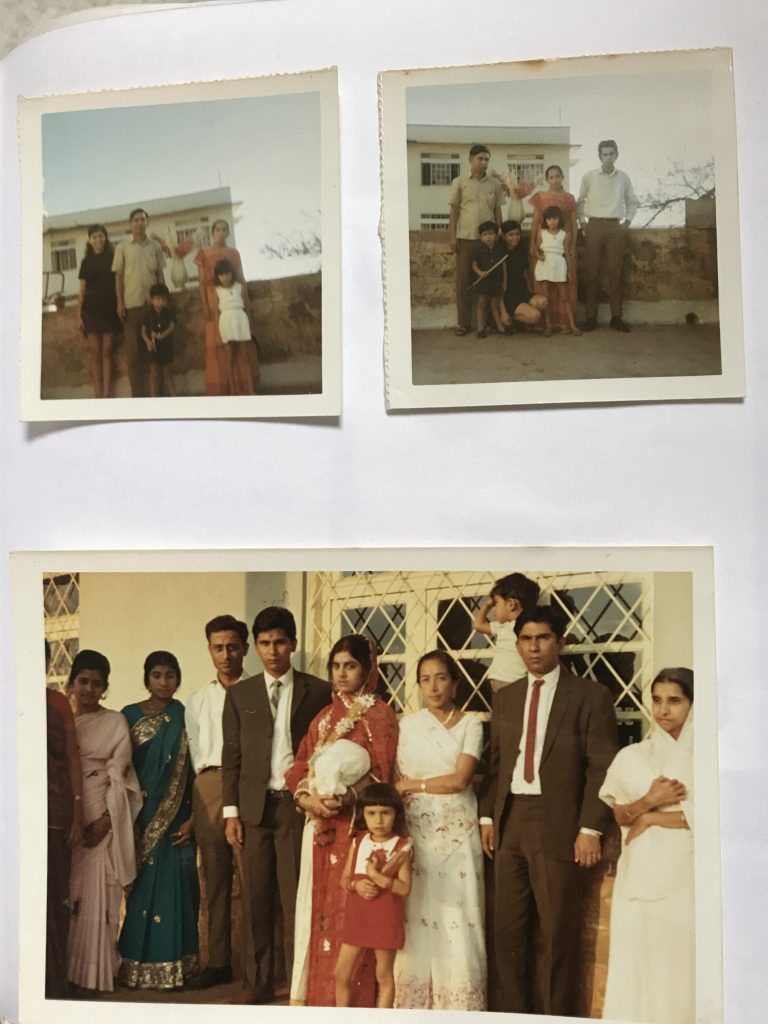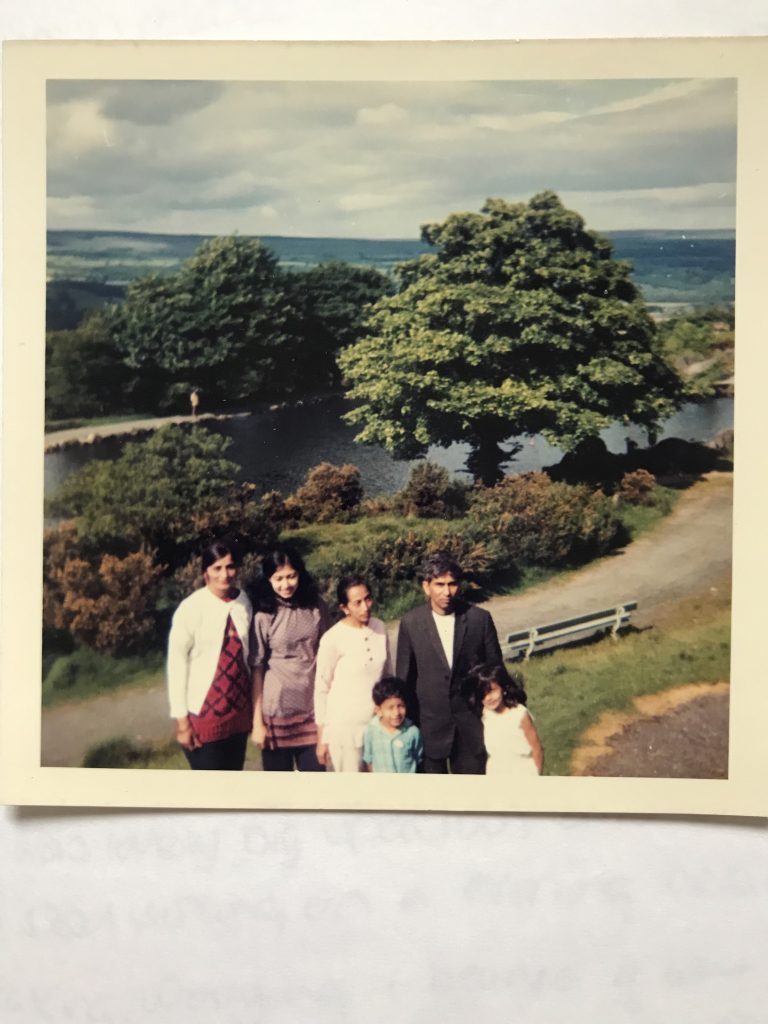This year marks 50 years since over 50,000 Asian Ugandans were expelled from their homes by military dictator Idi Amin.

Many will be marking the milestone with poignant parties and gatherings, but for other Ugandan Asians, the memory of what happened to them back in 1972 is too painful, and too traumatic to even think about.
However, Wigston’s Sophie Kanabar is using the anniversary to reflect and reminisce about her own Ugandan journey, which started when she was put on a plane to England with her family at the age of five…
“We had it all and it was just ripped out from under us.”
Sophie was born into a happy and comfortable life in Uganda, one which she says left her wanting for nothing.
The daughter of a successful business man, she started out life as Silpaben Dattani (her birth name), and she grew up in a large and beautiful house alongside her brother and sister.
“We were comfortable. We had everything in Africa, and we were happy,” she said.
But all that was about to change.
When Sophie was five, she and her family were expelled from Uganda by Idi Amin – the president at the time, who was also a brutal military dictator.
They were forced onto a plane to England, leaving behind everything they owned, everything they knew, and everything they loved.
Her mum was seven months pregnant at the time.
“I remember being at the airport clinging onto my mum’s sari and just looking up at her and saying “where are we going?” recalls Sophie tearfully.
“And she literally looked down at me and said quite simply; ‘I don’t know’.
“That stays in my head and I still get quite emotional now, even 50 years on,” she added.
Sophie’s family had just £50 to their name when they arrived in England, as any wealth that her father had accumulated was frozen in a bank account on orders of Idi Amin.
The family were taken to a camp, before being housed on a council estate in Ilkley Yorkshire, where they were targeted for being the only family of colour.
Sophie grew up wearing clothes from Oxfam, and although she had very little in terms of physical possessions, she carried a great deal of weight, trauma and shame on her young shoulders.
She also experienced a great deal of racism, as a young person growing up in a predominantly white community.

“In Yorkshire a lot of people couldn’t pronounce my name. They’d call me ‘Syphilis’ or ‘Super’, she revealed.
“I embrace the name Sophie because I think Sophie is the person I’ve become, but I’ll never forget Silpaben; the girl standing at the airport, holding on to my mum’s sari”
“It was just easier to be nasty rather than nice, so I think I just got fed up and chose an English name (Sophie) instead.
“I spent a lot of my time looking down as opposed to looking up because I was ashamed of who I was,” she continued.
“I was ashamed of my parents because we were so different and ashamed that we didn’t have anything.
“It was only when I reached my early 30’s that I thought, actually I’m going to start looking up and showing the world what I’m made of.”
Sophie went on to carve herself a successful career in the banking sector, and to have a family of her own in Wigston.
She credits her Ugandan experience for making her the woman that she is today, and also the influence of her mum, who displayed great “tenacity, strength and resilience” during those difficult times.

“She was our guiding light to get us through,” she revealed.
“She was four foot nothing – a tiny petite lady, but she had the strength of iron, she really did. Not once did I see her cry, right up until her dying day.
“I remember my mother thinking day to day, how are we going to manage, but my parents hid their pain from us very well,” she continued.
“They never talked about it to us, but I recall the heartbreak when we came to England. In the evening time when we were going to bed, they would sit beside the fire and literally just talk about Africa and how much they missed it,” she added.
“We had it all and it was just ripped out from under us.”
Recently, Sophie has been writing a memoir – a collection of diary entries about her Ugandan journey.
“I call it ‘The Sari’ because the sari was quite prominent for me at that time,” she told Pukaar.
It’s something which helps with the trauma, which is still quite raw even 50 years on.
Sophie plans to mark the 50th anniversary of Uganda in her own quiet and reflective way. She embraces her past as part of her story, but is keen to point out that it’s certainly not the same for everyone.
“My brother will not go back and remember those days, I think it’s just too traumatic,” she said. He doesn’t want to look back on it at all or embrace or celebrate it.
“I embrace the name Sophie because I think Sophie is the person I’ve become, but I’ll never forget Silpaben; the girl standing at the airport, holding on to my mum’s sari,” she added.
By Louise Steel



